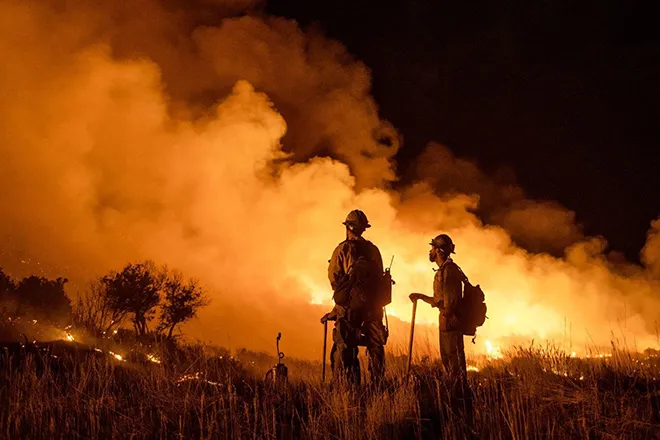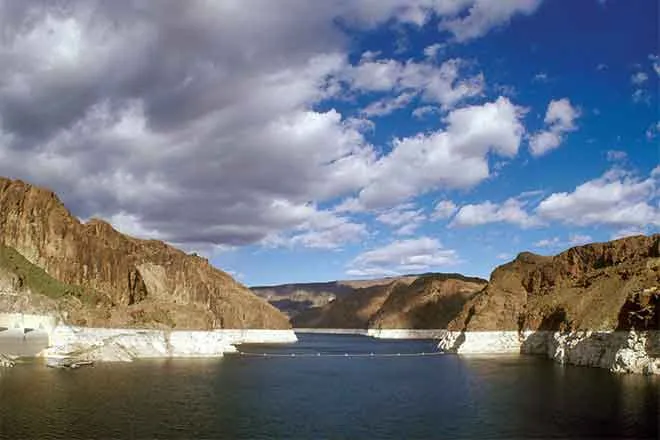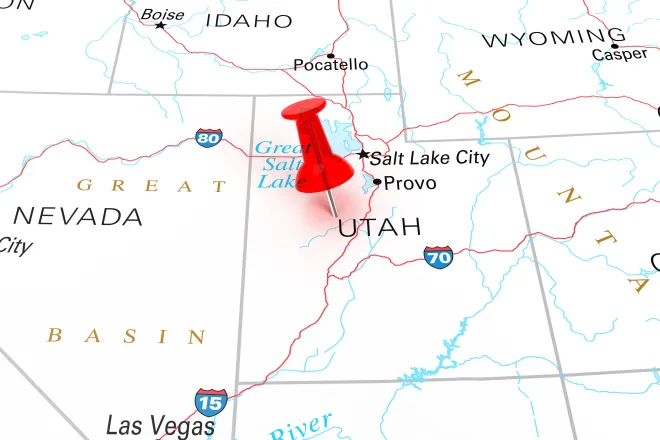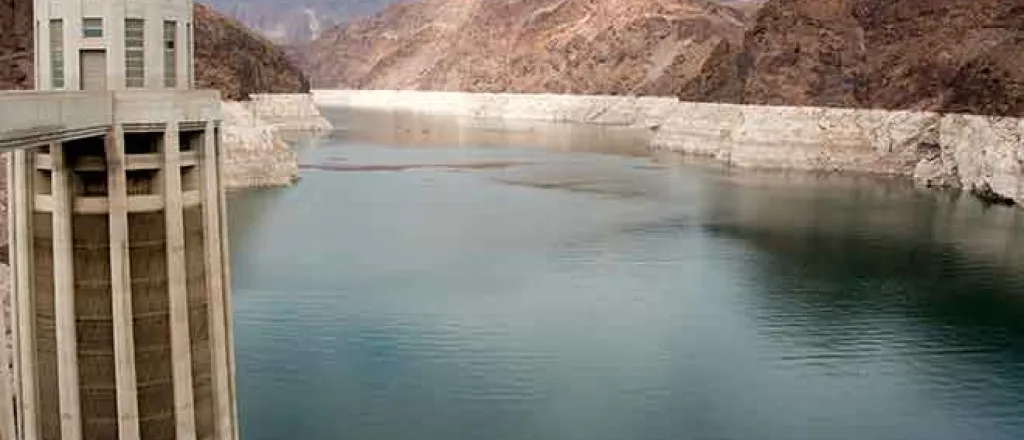
New legislation would ratify Colorado River water settlements for three Arizona tribes
(Source New Mexico) A bipartisan coalition of Arizona’s congressional delegation introduced legislation to address one of the longest-running water issues facing three Arizona tribes.
The Northeastern Arizona Indian Water Rights Settlement (NAIWRSA) Act of 2024 would ratify and fund the largest Indian water rights settlement in the country, which will secure water rights for the Navajo Nation, Hopi Tribe and the San Juan Southern Paiute Tribe.
“This legislation and the settlement it ratifies represent a historic step forward in resolving a decades-long water rights dispute, providing certainty and stability for the Navajo Nation, Hopi Tribe, and the San Juan Southern Paiute Tribe,” Democratic U.S. Senator Mark Kelly said in a written statement.
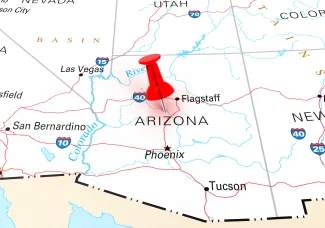
Kelly and Kyrsten Sinema, an independent, introduced the act in the U.S. Senate on July 8. Identical legislation was also introduced in the U.S. House of Representatives, where it is cosponsored by Representatives Juan Ciscomani (R-Tucson), Raúl Grijalva (D-Tucson), Greg Stanton (D-Phoenix) and David Schweikert (R-Scottsdale).
“Our historic bipartisan legislation delivers real, lasting results for the Navajo Nation, Hopi Tribe, and San Juan Southern Paiute Tribe by strengthening water security, creating economic opportunities, and providing certainty and stability so their communities can continue to thrive,” Sinema said in a press release.
The Northeastern Arizona Indian Water Rights Settlement Agreement will settle the Navajo Nation, the Hopi Tribe, and the San Juan Southern Paiute Tribe’s claims to the main stem of the Colorado River, the Little Colorado River, and relevant groundwater sources in Arizona.
“Securing water rights for these tribes upholds their sovereignty and lays the path for their growth and prosperity through increased investment in water infrastructure,” Kelly said. “Ratifying this settlement honors our commitment to the tribes and helps secure our state’s water future, and we’ll work together as Republicans and Democrats to get it done.”
The bill states that the legislation aims to achieve a fair, equitable and final settlement of all claims to rights to water in Arizona for the three tribal nations.
In addition to settling the tribes’ ongoing water claims in the Colorado River Basin, it includes billions in funding for essential water development and delivery projects for the tribes.
Ciscomani said in a written statement that the settlement and legislation will provide a “long-lasting partnership” between Arizona and the tribes.

© Rebecca J Becker - iStock-1251580456
“This not only gives much-needed certainty to the Tribes but allows Arizona to better plan for a secure water future while providing for improved water infrastructure throughout the region,” he said.
As part of the settlement, the three tribes would gain access to reliable and safe water for their community through various outlets, including the upper and lower basins of the Colorado River, aquifers, shared washes and water infrastructure development.
“The Northeastern Arizona Indian Water Rights Settlement Agreement is a monumental achievement and the product of negotiations spanning almost 30 years,” said Leslie A. Meyers, the associate general manager of water resources for the Salt River Project. “Salt River Project has participated in the negotiations from their inception.”
Meyers said SRP enthusiastically supports the bills because the settlement provides the three tribes with the desperately needed water supplies and infrastructure to secure their futures.
The water settlement authorizes $5 billion to acquire, build, and maintain essential water development and delivery projects, including a $1.75 billion distribution pipeline.
The three tribes would be guaranteed access to over 56,000 acre-feet of Colorado River water and specific groundwater rights and protections.
Grijalva said that the legislation deserves the full support of Congress because the settlement was the historic culmination of a decades-long effort to bring water to the three tribes.
“As the climate crisis continues to exacerbate an already devastating multigenerational drought, the federal government’s obligation to deliver clean, safe water and water infrastructure to the tribes could not be more pressing,” he said. “I urge my colleagues to move this legislation to the president’s desk quickly.”
Tribal leaders commend legislation introduction
Leaders from the Navajo Nation, Hopi Tribe and the San Juan Southern Paiute Tribe commended the work of everyone involved in writing the settlement and introducing legislation to Congress.
Tribal councils from all three tribes initially passed bills supporting the water settlement in May. However, Congress must approve the settlement before it can go into law.
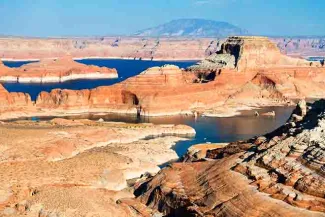
© iStock - ventdusud
“For decades, our Navajo people have lived without piped water in their homes, with many of our elders hauling water over 30 miles roundtrip,” Navajo Nation President Buu Nygren said during a press conference on Tuesday. “More than 30 percent of the homes on the Navajo Nation lack running water. This is unacceptable.”
Nygren said that the Navajo people are American people, and no one in America should be denied access to water because of where they live.
“This settlement ensures that the Navajo people will have rightful access to water, providing certainty for our homeland’s future and an equal opportunity for health and prosperity,” he added.
If the act passes Congress, the Navajo Nation water infrastructure it would fund will bring substantial clean, safe and reliable drinking water to Navajo communities in Arizona, according to Nygren’s office. The infrastructure will allow tens of thousands of Navajo people in Arizona to have piped water in their homes for the first time.
“It is a great opportunity here to claim what is ours as Navajo people,” Navajo Nation Council Speaker Crystalyne Curley said Tuesday. “Water is essential to every living thing that we possess in the Navajo way.”
She said this is the first time a tribe is bringing this large of a water settlement to Congress, and she said it is unfortunate that the Navajo Nation is one of the last tribes in Arizona to bring its water settlement to a federal level.
Curley said it’s as if the Navajo Nation is going up to Congress with an empty cup and begging for both what is rightfully theirs and what they deserve.
“Without this settlement, our communities will remain disproportionately vulnerable to diseases, and development on the Reservation will continue to be restricted by the lack of water infrastructure,” she said in a press release.
Curley noted how the COVID-19 pandemic hit the Navajo Nation particularly hard due to the tribe’s lack of access to clean water and plumbing.
Through the water settlement, the Navajo Nation would gain access to 44,700 acre-feet per year of the Upper Basin Colorado River Water and 3,600 acre-feet per year of the Lower Basin Colorado River Water.
The Navajo Nation will also lease, exchange, and accrue long-term storage credits for its Arizona water as part of the settlement. The tribe could store Arizona water in two reservoirs in New Mexico and aquifers on the Navajo Navajo for later recovery.
The Navajo Nation would also be able to engage in inter-basin transfer of Colorado River water in Arizona and divert its water from New Mexico and Utah for use in Arizona.
The San Juan Southern Paiute Tribe, which spans Arizona and Utah, will not only receive water rights from the settlement but also ratify the treaty and create their reservation boundaries.
“We are so thankful to Senator Kelly and Senator Sinema for introducing legislation that will not only provide our Tribe with water but will also ratify a treaty negotiated and entered into by the San Juan Southern Paiute Tribe and the Navajo Nation decades ago,” Robbin Preston Jr., president of the San Juan Southern Paiute Tribe, said in a press release.
“The Tribe has waited far too long to have an exclusive reservation of its own,” Preston added. “The opportunities made available through this legislation will change the lives of our Tribal Members and the trajectory of our Tribe.”
As part of the settlement, the tribe will gain 5,400 acres of land within the Navajo Nation, which will be proclaimed the San Juan Southern Paiute Reservation. The land will be held in trust by the United States.
Preston said the settlement would provide the San Juan Southern Paiute people with reliable electricity, water, and housing.
“Our people will have opportunities that have never been available to us before,” he added. “This legislation is more than a settlement of water rights; it is the establishment of an exclusive reservation for a Tribe that will no longer be forced to live like strangers in our own land.”
For the Hopi Tribe, the settlement guarantees access to 2,300 acre-feet per year of the Upper Basin Colorado River Water and a little over 5,900 acre-feet per year of the Lower Basin Colorado River Water.
Hopi Chairman Timothy Nuvangyaoma expressed his gratitude to the state, tribes and neighboring communities for working to make the settlement a reality.
“Our collective action means a more secure water future for the Hopi Tribe and all of our neighbors in Northern Arizona,” Nuvangyaoma said.
As part of the settlement, the Hopi Tribe can lease, exchange, and accrue long-term storage credits for its water, store it in aquifers on Hopi land for later recovery and engage in inter-basin transfer of the Colorado River within Arizona.
Arizona Mirror is part of States Newsroom, a nonprofit news network supported by grants and a coalition of donors as a 501c(3) public charity. Arizona Mirror maintains editorial independence. Contact Editor Jim Small for questions: info@azmirror.com. Follow Arizona Mirror on Facebook and X.
Source New Mexico is part of States Newsroom, a nonprofit news network supported by grants and a coalition of donors as a 501c(3) public charity. Source New Mexico maintains editorial independence. Contact Editor Shaun Griswold for questions: info@sourcenm.com. Follow Source New Mexico on Facebook and X.







